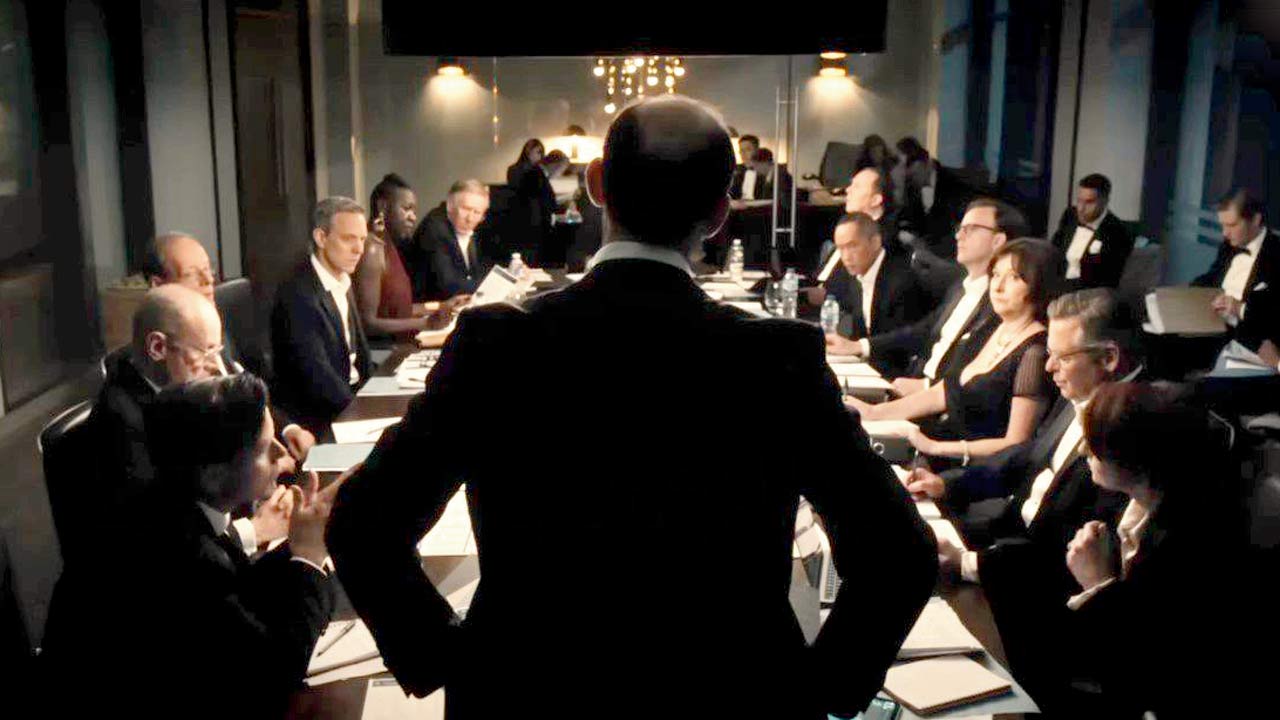A toxic office culture can go to great extremes, as a popular television series highlights. But how can you cope when quitting isn’t an option?

Pic/iStock
Aaddictively brutal’. That’s how most people who find themselves hooked to the hit HBO-television series Industry would describe the show, which has now returned for its third season. Seemingly centred around a group of relentlessly ambitious but entirely dysfunctional finance executives whose lives, careers and existence revolve around a prestigious London-based investment bank, the show touches on narratives that ring a little too uncomfortably close to home for many. Of these, the most prominent is workplace toxicity, a theme that has gained particular notoriety in recent times, especially after the tragic death of a Big Four employee who reportedly succumbed to relentless work pressure. But, dig a little deeper and you’ll find that the definition of what comprises workplace toxicity varies, depending on who you ask — while some may quote an overbearing boss or a crushing workload, others may describe it as a more deeply-seated dissatisfaction with how they’re treated or perceived at their workplace.
ADVERTISEMENT
Toxic or a new normal?
For Dr Brajesh Bajpai, who holds a coaching and mentoring doctorate, a toxic workplace is one where the performance or wellbeing of employees is impacted because of harassment, bullying or discrimination. “Today, the term ‘toxic workplace’ is used quite broadly and casually. While there are clearly defined parameters such as abusive behaviour, bullying, and physical or sexual misconduct that most people recognise as unhealthy, there are also individual and specific parameters ascribed as contributing to workplace toxicity. Growing awareness about international work cultures [he notes that while European countries have been prioritising work-life balance for several decades now, Indian employers and employees have only recently been introduced to the concept] as well as increasing conversations about mental health, combined with rapidly evolving work cultures and communication styles, have all contributed to workplace toxicity becoming an increasingly popular topic for discussion,” he observes.
 The TV series explores topical and hard-hitting themes like workplace toxicity that employees face in a London-based investment bank
The TV series explores topical and hard-hitting themes like workplace toxicity that employees face in a London-based investment bank
“A toxic workplace is not just about occasional disagreements or work stress; it’s a space where negativity becomes a norm, and this toxicity often stems from dysfunctional leadership or unaddressed conflicts. When communication breaks down and fear, manipulation, or favouritism become common, it fosters an environment where employees feel constantly threatened or marginalised,” explains Dr Naazneen Ladak, a psychiatrist and mental health expert. She adds that factors such as unrealistic deadlines, micromanagement, or a lack of trust in employees’ abilities contribute to mental strain and can lead to them spiralling into anxiety or depression. Over time, this erodes creativity and productivity. Bajpai notes, however, that an occasional instance of being asked to work late, or on a weekend, or being tasked with an uncharacteristically heavy workload does not necessarily constitute toxicity. “It’s only when these behaviours become repetitive and form an observable pattern that they veer into the realm of workplace toxicity,” he clarifies.
Dr Ladak adds that a clear indicator is when employees start to feel that their work or efforts never seem to be enough. “Constant feelings of inadequacy are a sign that the environment is psychologically damaging. If employees notice frequent passive-aggressive behaviour, cliques forming, or communication becoming a weapon rather than a tool, these are red flags. Toxicity often creeps in subtly, with signs such as emotional exhaustion, distrust among colleagues, or feeling isolated even when part of a team,” she shares. Hemalatha Raghuvanshi, co-founder and CHRO of Sekel Tech, says that a chronic inability by the organisation, whether in the form of HR or the upper management, to remedy toxic behaviours can foster a toxic work culture. “If manipulation is encouraged, there is no appreciation for good work, unprofessional behaviour is rewarded as is unhealthy competition, it can be indicative of an unhealthy organisational culture,” she explains.
 Brajesh Bajpai and Naazneen Ladak
Brajesh Bajpai and Naazneen Ladak
Mindset shift
Dr Bajpai notes that, quite often, the factors that lead employees to succumb to unhealthy ways of coping with work pressures or feel overwhelmed by what is expected of them professionally stems from factors that lie within.
 Fostering relationships with colleagues can help in coping. Representation pic
Fostering relationships with colleagues can help in coping. Representation pic
“Many of the characters’ dysfunctional behaviour is not driven by external challenges, but rather by their own internal challenges that propels them to overcompensate by seeking validation at their work, at all costs. There is a Buddhist saying that goes: ‘The first arrow hurts, but the second arrow hurts more’. Here, the first arrow describes what happens to you, while the second arrow is what you do with what happens to you. Without shifting blame, it can help to sometimes take a step back, and look inwards and critically analyse what is causing this sense of internal turmoil. That is a good starting point if you want to adopt a constructive mindset,” he says. Subsequently, these steps may help to cope:
 Lead character (left) Harper Stern in a moment from the trailer of the new season. Pics Courtesy/YouTube
Lead character (left) Harper Stern in a moment from the trailer of the new season. Pics Courtesy/YouTube
. Set healthy boundaries: “Set clear expectations and learn to say no. Understand that there’s more to life than work. Make time for yourself to relax and de-stress,” says Ojas Mehta, a life purpose coach and workplace wellbeing facilitator. Dr Ladak adds that it’s important to consciously create psychological distance between yourself and the toxicity. This way, you can focus on your tasks and not the environment.
. Have a sounding board: Dr Bajpai warns against leaning solely on friends and family members for advice. “These individuals, although well-meaning, are only listening to your side of the story. Instead, seek mentors in the industry who have lived through these experiences and have a more objective, macro view. Often, this may give you the clarity you need,” he explains. Fostering relationships with peers who are similarly affected is an underrated method of coping. There’s strength in solidarity, adds Dr Ladak.
 Hemalatha Raghuvanshi and Ojas Mehta
Hemalatha Raghuvanshi and Ojas Mehta
. Solutions not complaints: If you find yourself compelled to take action, Dr Ladak recommends documenting toxic incidents and engaging with HR or the management in a calm, solution-oriented way. “If you’re strategic, you can sometimes turn the situation into an opportunity to lead change,” she says.
. Introspect and be pragmatic: “Be honest with yourself about your true motivations. What this work is actually giving you? Is it money, achievement, challenge, learning, growth, connection, time or something else? What is your motivation to go to work? What do you really want in life and from your career? These vital questions can give you a sense of your purpose, and thus passion and direction,” says Mehta. “While many industries have adopted a more progressive and empathetic work culture, certain sectors are still steeped in their unhealthy ways. A high-pressure, high-stakes environment will have its perks of material gains. However, there will be a trade-off in terms of your stress levels and mental health. Know what you are willing to compromise on and what your non-negotiables are. This will help you to determine whether you are a good fit with the job, the organisation or even the industry you are working in,” says Bajpai.
 Subscribe today by clicking the link and stay updated with the latest news!" Click here!
Subscribe today by clicking the link and stay updated with the latest news!" Click here!







